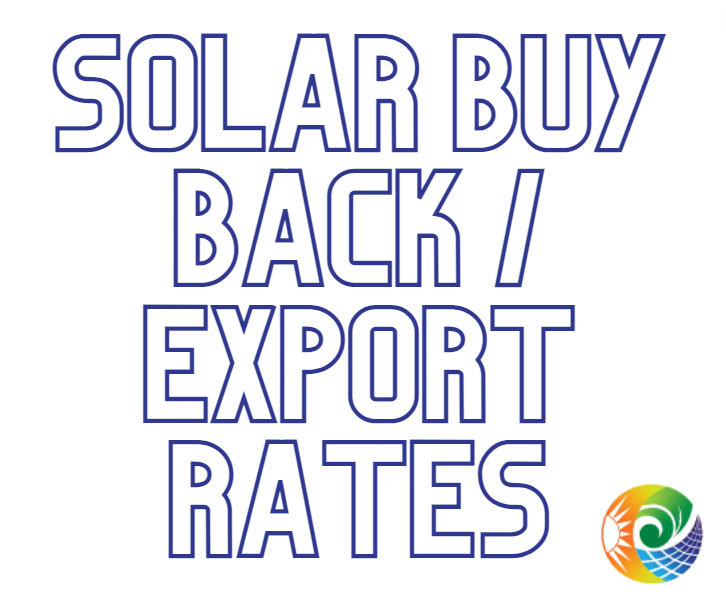What are Solar Buy-Back Rates?
June 13, 2023
If you’ve made the decision to invest in solar power, you’re probably aware of the many benefits it can bring to your home or business. One of the key advantages of solar power is the ability to generate your own electricity and even sell any excess energy back to your electricity retailer. But how important are solar buy-back rates, and how can you make the most of them?
What are Solar Buy-Back Rates?
When your solar power system generates more electricity than you’re using, the excess energy flows back into the local power network. You may be able to sell this excess energy back to your electricity retailer and receive it as a credit on your power bill or as separate passive income. The amount you’re paid per unit (kWh) of excess electricity is known as the buy-back rate.
Why are Buy-Back Rates Important?
The importance of the buy-back rate will depend on the size of your solar system and how you use your electricity during the day. If you have a smaller solar system, you’re likely to be using most of the energy generated, so the buy-back rate may not be a major consideration. However, if you have a larger system, you’re more likely to export a significant portion of the power generated, so you’ll need to spend time getting a good buy-back rate, as it may have a significant impact on the return on investment (ROI) from your solar system.
Your daytime power usage and working from home are also important factors to consider. The more of your own energy you use, the better. If you’re working from home, you’re likely to be using more energy during the day, which means you’ll be exporting less energy and relying more on your own solar power. In this case, a sharp buy-back rate is still useful, but not as important as getting a good rate on imported power.
What Buy-Back Rates Can You Expect?
The buy-back rates vary by electricity retailer but are typically in the range of $0.08 to $0.18c per unit of electricity, plus GST (if applicable). If you have a large residential system (typically over 10kW) or a commercial system, you’ll want to pay close attention to the buy-back rate you’re offered and any terms attached, as it may have a significant impact on the ROI from your solar system.
In summary, the importance of solar buy-back rates depends on the size of your solar system and how you use your electricity during the day. The larger your system gets, the more important the buy-back rate should be to you. However, it’s also important to understand your energy consumption and make sure you’re using as much of your own energy as possible. If you’re considering a solar investment, talking to solar specialists about your energy needs, goals and lifestyle are a great place to start.
You can check out the latest solar buy-back rates here: https://www.powerswitch.org.nz/solar
Get in touch with us to help with your solar power needs.


